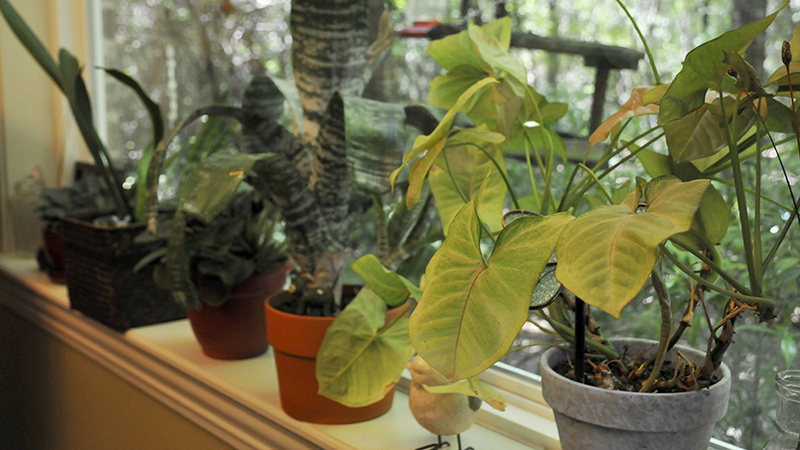Indoor plants good for health
Published 7:00 am Friday, April 27, 2018

- Keeping indoor plants have been shown to have several physical and psychological benefits. Photo by Leah McEwen.
Having plants around the home can be physically and psychologically beneficial.
Psychologically, “Interior plants have been associated with reduced stress, increased pain tolerance, and improved productivity in people,” an article by the Department of Horticulture and Landscape Architecture states.
According to the article, when plants are in a home, productivity goes up, stress is significantly reduced and feelings of attentiveness and positivity increase.
Crosby Arboretum Director Pat Drackett said plants are good for a person’s mental health and wellbeing both in a home and office setting. She said since plants have a positive impact when they are outdoors, they will have a similarly positive impact when indoors.
“It’s a good idea to have indoor plants,” Drackett said.
In a study by the National Institute of Health, 24 young men were gathered and given one of two jobs – working a computer or transplanting a plant. Even though the men involved in the study were all university students who used computers on a regular basis, they still felt more comfortable with the unfamiliar work of handling plant life, the article states.
After testing was finished, “the subjects felt more comfortable, soothed and natural after the transplanting task than after the computer task. Furthermore, diastolic blood pressure was significantly lower after the transplanting task,” the article states.
Besides psychological benefits, Crosby Arboretum educational curator Jennifer Buchanan, said incorporating plants into the home or workplace has surprising physical benefits.
“(It’s) not only good for your mental health, but it’s also good for your physical wellbeing, because plants filter the pollutants out of the air,” Buchanan said.
Air pollutants, such as carbon monoxide and mold, are among the top environmental health hazards according to the U.S. Centers for Disease Control’s website. These contaminates, in addition to other chemical compounds, can cause serious health problems when inhaled in high densities.
According to research by the American Chemical Society, buildings, no matter the age, have the potential to emit volatile organic compounds in high levels.
“VOCs are compounds like acetone, benzene and formaldehyde that are emitted as gases and can cause short and long-term health effects when inhaled. They can come from paints, furniture, copiers and printers, cleaning supplies and even dry-cleaned clothes,” ACS research states.
Fortunately, there are several plants that filter out these unhealthy compounds and chemicals naturally when placed indoors.
A study by the National Institute of Health focusing on a plants ability to resist insect infestation, remove chemicals from the air, ease of maintenance and rate of transpiration found the areca palm, lady palm, bamboo palm, rubber plant, dracaena, English ivy, dwarf date palm, ficus, Boston fern and peace lily effective at removing VOCs.




